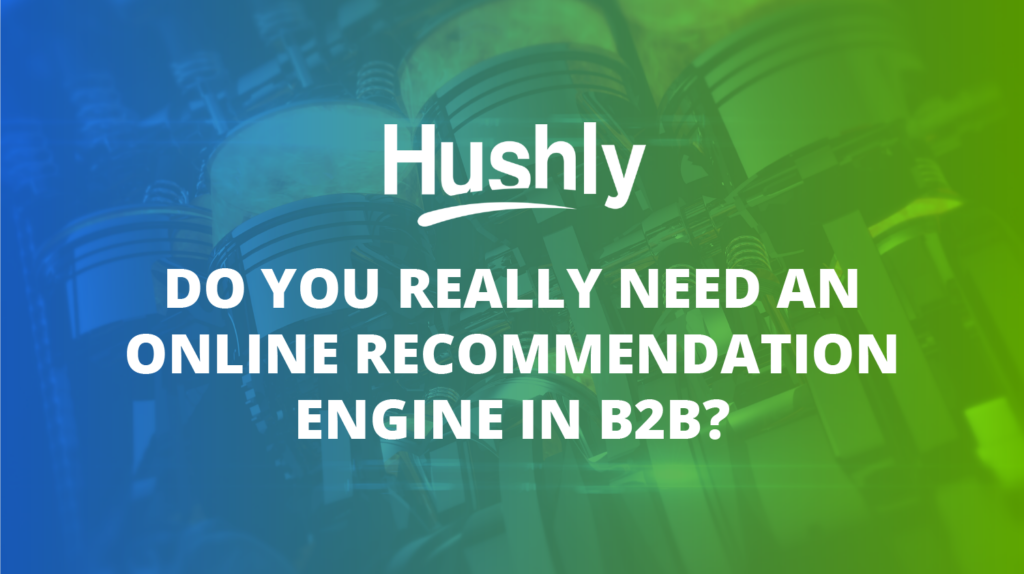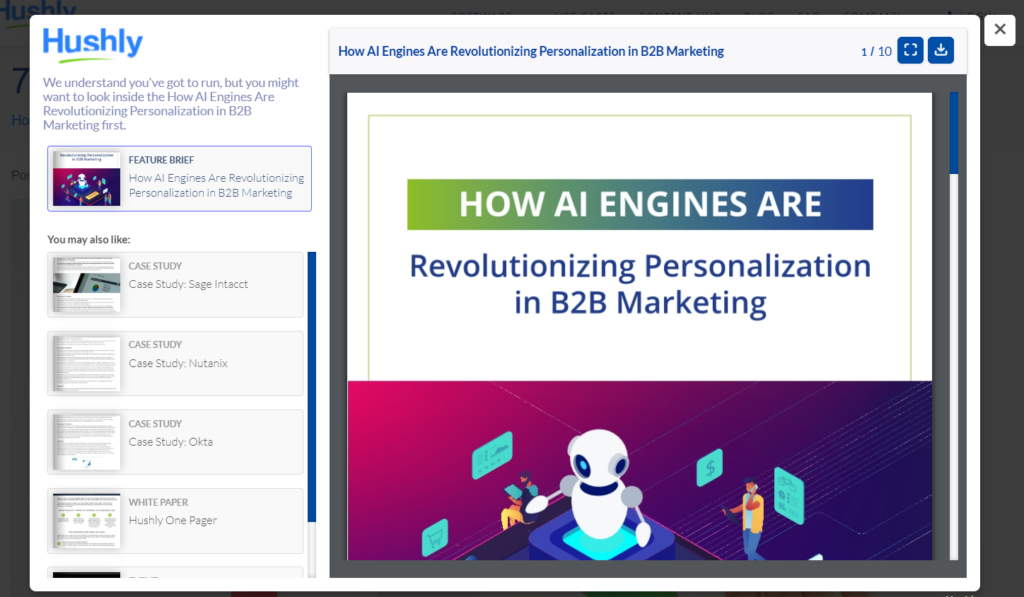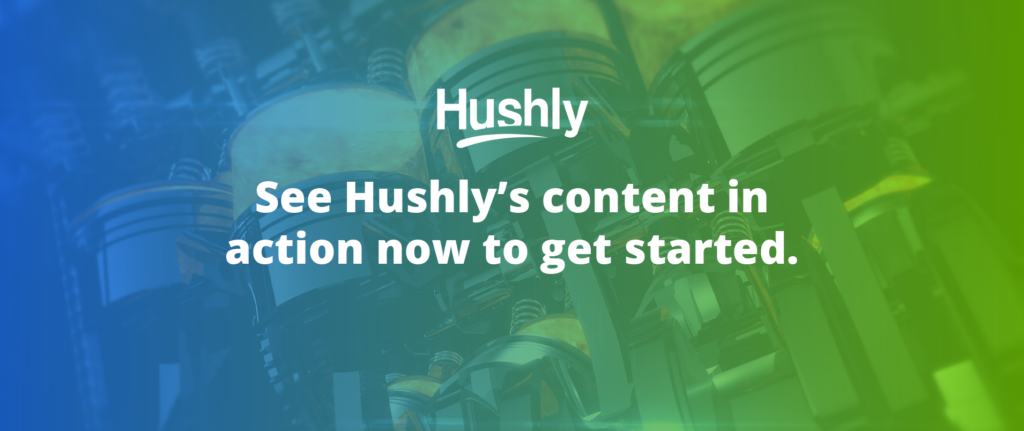Despite its pervasiveness in the consumer sector, many B2Bs still seem reluctant to admit that B2B buyers expect a personalized experience.
Even B2Bs who do offer some personalization fall short with delivering results.
Research estimates that 80% of B2Bs will abandon their personalization strategy by 2025 due to poor ROI. Yikes.
The problem lies in how businesses collect and use their data. What they may not realize is that an online recommendation engine can solve the data problem and provide a personalized experience for every visitor.

What is an Online Recommendation Engine?
You’re probably most familiar with online recommendation engines in the context of search engines.
You plug in a search query, the search engine scans millions – or billions – of webpages, and delivers custom recommendations to you.
Without digging too deep into search engine optimization, it’s worth pointing out that Google DOES take prior searches into account, monitoring which results users click for each query and how long they stay on each page. In some cases, the search engine may consider your own past search history as well.
The search engine algorithm uses machine learning to improve its results and offer the best answers for each query based on countless factors.
Then you also have online recommendation engines in the context of media platforms. Facebook, Netflix, Spotify, Pandora, and YouTube all offer personalized content recommendations using an algorithm and machine learning.
You may not realize, however, that you can also easily add an online recommendation engine to your website to personalize the visitor experience.
Instead of simply presenting your visitors with blog categories, you can use an algorithm to offer personalized suggestions based on the content they’ve already viewed, how long they read each piece of content, what they clicked next, and the behavior of previous visitors who behaved similarly.
Why Should You Add an Online Recommendation Engine to Your Website?
An online recommendation engine is beneficial both for your business and people visiting your website.
To Nurture Leads at Each Stage of the Sales Cycle
The biggest benefit to a content engine is that you can nurture leads literally as you sleep.
Here’s how lead nurturing used to go:
- Hundreds of people visit your website to read your blogs.
- A handful of them convert into leads.
- You follow up with leads and learn about them.
- You nurture them into completing a purchase.
This process is long, drawn-out, and frankly, outdated.
Today, you can start nurturing visitors in real-time as soon as they visit your website through the power of AI.
An estimated six to seven team members are involved in each sales process, on average. Everyone browsing your site has different roles at their company. It’s impossible to create effective content for all of them at each stage of the sales cycle.
An online content engine, however, can provide personalized content to every visitor more efficiently than a human ever could.
Not only that, but a content recommendation engine uses intent data to understand where each visitor is in the sales process and offers them relevant content. Leads can self-nurture as they read content on your site because the recommendation engine guides them through the sales process with its chosen content assets.
Remember that leads complete anywhere from 57% to 90% of the sales process entirely alone without speaking to anyone at your company, so giving them the tools to research and self-nurture is key to ROI.
To Learn About Your Audience
A personalized recommendation engine can also put more power in your hands to learn about your audience and their behavior so that you can create more relevant content.
When your visitors are offered personalized content recommendations, you can build a better understanding of their likes, needs, and dislikes.
Once a visitor hangs out on your site for some time browsing content, you can review your website traffic and see what they liked best. Use that information and build on it to create more content.
You can use this for two tiers of content: topics and types.
Remember that different visitors like unique types of content. 64% of B2Bs like podcasts, while 76% like infographics and 49% like video. These might seem like safe bets but you won’t know until you review your traffic.
Example of a content engine in action:

Source: Hushly
For Account-Based Marketing
When it comes to account-based marketing, an online recommendation engine is vital.
You could even argue that AI has made it possible for average businesses to build an ABM strategy at all. It’s simply not possible for most companies with limited budgets to have one without AI.
Account-based marketing requires particular care because your content needs to be hyper-relevant AND target your leads (and customers) at each stage of the sales process.
Instead of retroactively sorting through your lead database, drawing conclusions, analyzing the details, creating content, and choosing a delivery method to nurture, AI does everything while a visitor is still on your website. That’s right. It starts nurturing company-specific visitors before they ever convert into leads!
To Provide a Personalized Experience
85% of B2B buyers say they expect brands to provide a personalized experience from the very first interaction. If a brand doesn’t, they will likely dismiss the company.
That puts a lot of pressure on companies to personalize the buyer experience from the get-go.
Fortunately, an online recommendation engine makes it easy to start personalizing every point of contact on your site so you can provide the experience potential buyers expect.
When a potential lead visits your site, they may not know what they’d like to read or consume next. A personalized engine gives them recommendations akin to Netflix so they can binge at their leisure and find something that speaks to them without the effort of searching through categories.
Add an Online Recommendation Engine to Your Site Now
Hushly’s AI is easy to add to your site so you can offer your visitors a personalized online recommendation engine. Every visitor gets a completely personalized experience that guides them down the sales funnel – whether they’re a collected lead or random unknown browser.

